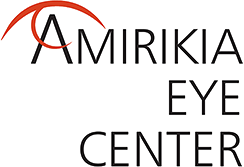Scheduling routine eye exams is an integral part of overall health and wellness. Far too many people put off having their eyes checked until a problem develops. Many eye disorders don’t manifest symptoms until the condition is moderate to severe, which is why early detection is so important. At Amirikia Eye Center, our doctors offer comprehensive eye exams in a warm and welcoming environment. Use the simple online scheduling tool to find a good time to visit the Pontiac, Michigan office.
Eye Exams Q & A
What happens during an eye exam?
When you come in for your eye exam, our doctor asks about your general health history and any specific eye concerns that you have. A thorough physical exam follows, which is painless and swift.
She checks your vision through a visual acuity test. You read letters out loud from a chart positioned at a distance from a vertical surface. Our doctor also tests your near vision using a series of printed cards.
Next, you receive eye drops to numb your eyes. That allows our doctor to test your eye pressure without discomfort. Eye drops can also dilate your pupils, allowing her to examine the inner portion of your eye using special lights. Again, this exam is painless, and she explains each step beforehand.
Depending on the information gleaned during your eye exam, you may receive additional testing.
What is refraction assessment and why is it important?
Refraction assessment is a test used to determine the strength of your eyeglass lens prescription. Refraction also rules out the need for glasses.
During this procedure, our doctor uses a manual or computerized refractor to check your vision under several different lens options. You respond to each option to narrow down the lens that gives you the sharpest, most precise vision.
The refractor is a large device that looks like a mask. It’s positioned in front of your face and adjusted to sit at your eye level during the testing process.
How is retinal examination accomplished?
Our doctor can examine the rear portion of your eye by administering special eye drops that dilate your pupils and allow more light to enter. She may use an ophthalmoscope to direct a beam of light into your eye that illuminates the rear portion.
Another option involves combining a condensing lens and a bright light to examine the inner structures of your eye, including your retina. She can complete this process whether you’re sitting up or reclining.
During your retina exam, our doctor looks for any abnormalities in the blood vessels that nourish your eyes. She can also check your optic disk during the exam visually. A retinal examination is a powerful diagnostic tool that can lead to early intervention and treatment of several severe eye disorders.
To schedule your next eye exam, contact the Amirikia Eye Center team today to secure an available appointment.




